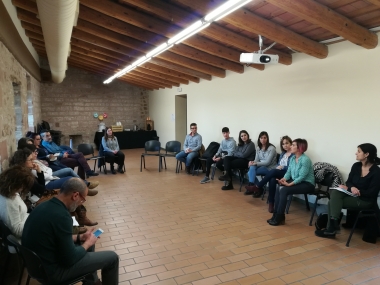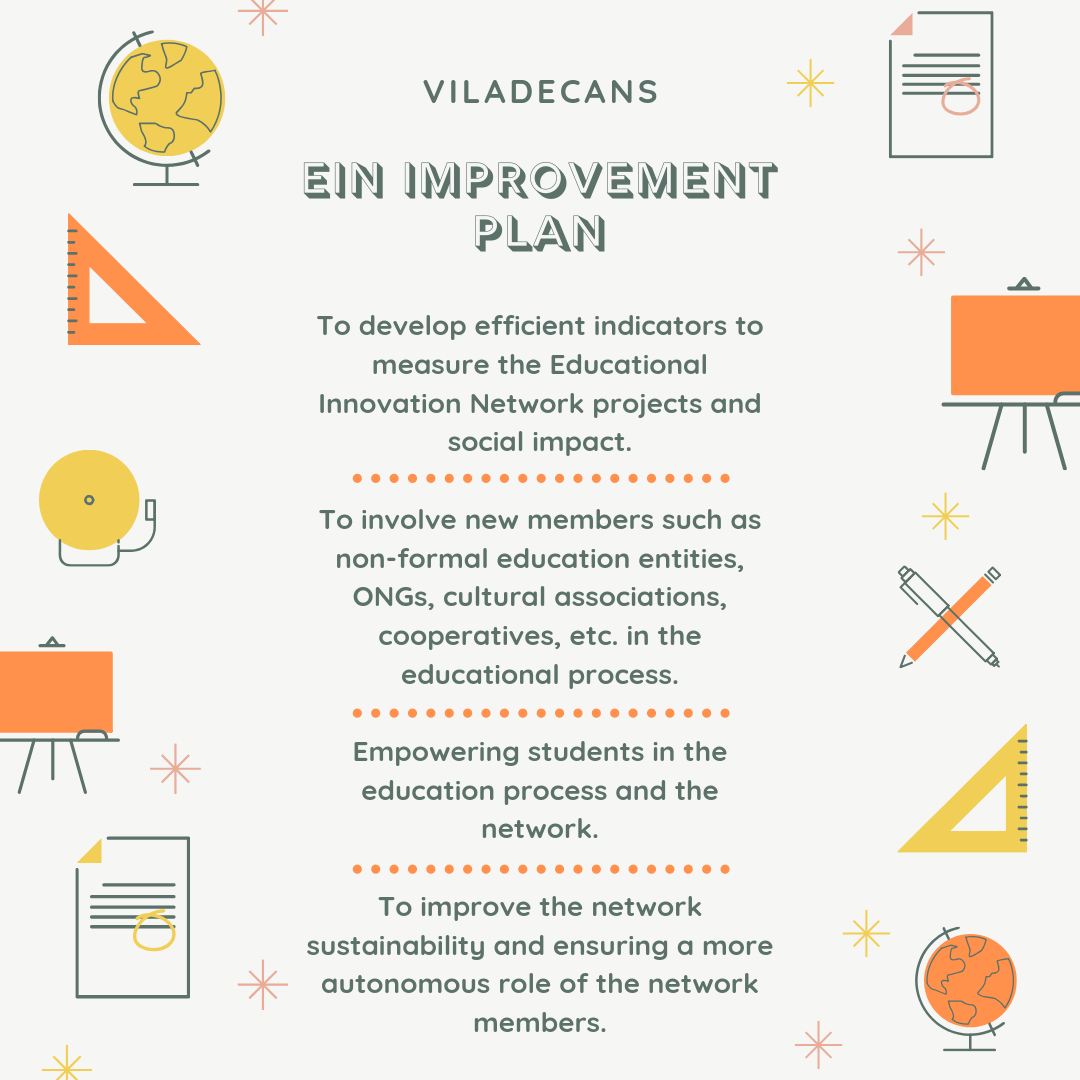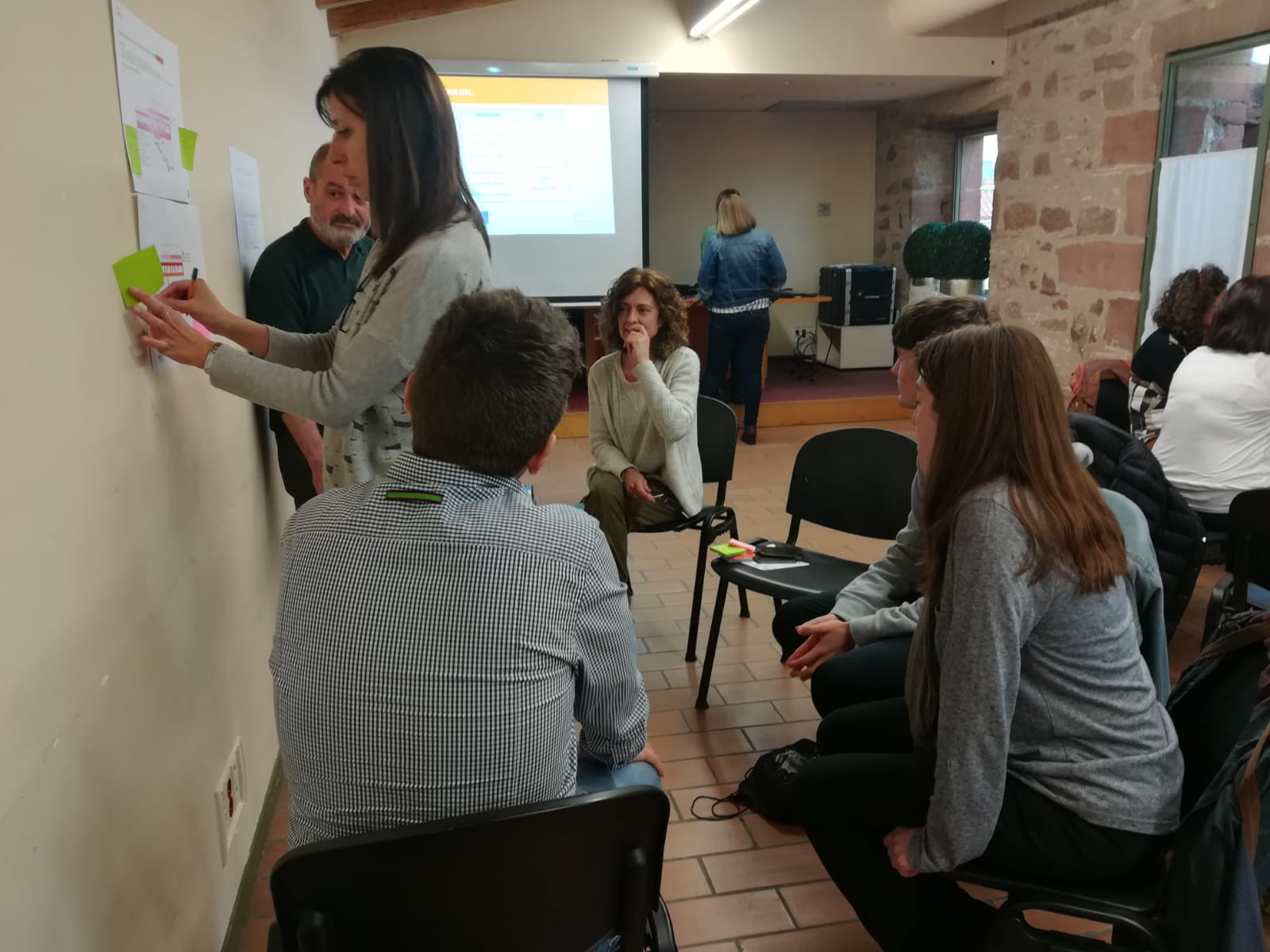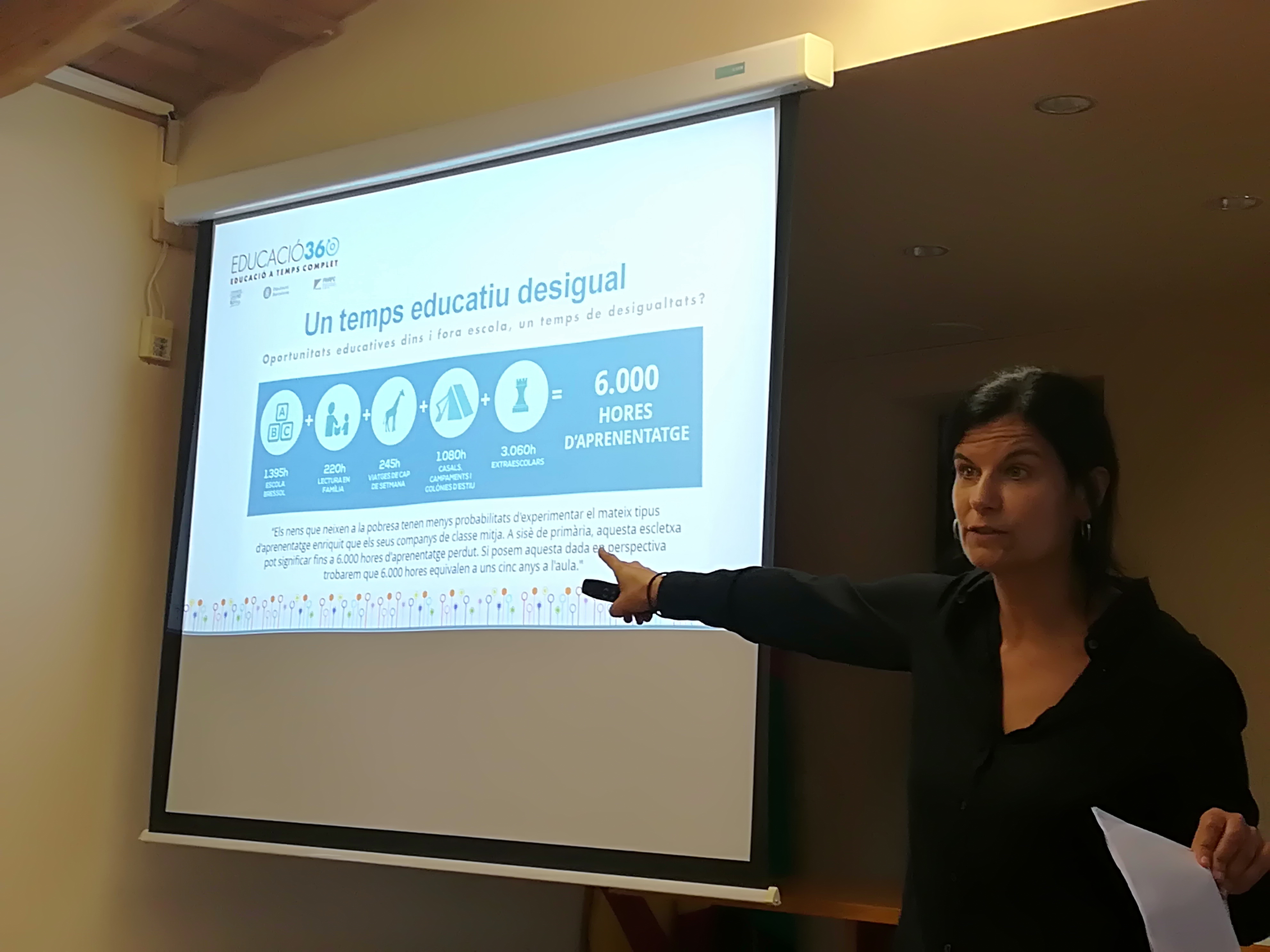ON BOARD good practice, the Educational Innovation Network, gets ready to be improved
Edited on
10 July 2019Just before Easter break, the first gathering of the second phase of the local support group was held in Viladecans. In this session of the URBACT support group in Viladecans, representatives from different schools, local companies, families and youths had the chance to validate and make contributions to the Educational Innovation Network improvement plan.

The EIN of Viladecans proposed improving four specific aspects: defining clear indicators to measure the network’s projects and social impact, involving more local entities in the network (NGOs, cultural associations, cooperatives, etc.), getting youths involved in the dynamics of the educational community and the EIN, and fostering self-dynamisation of the network.

This improvement plan of the EIN is associated with the second phase of the project and seeks to use the different transnational sessions to learn from all the partner cities and their experiences and to apply this new knowledge to the different actions carried out during this phase.
During the session, two working groups were made to share ideas and viewpoints on the different initiatives proposed in the city improvement plan with the assistance of the URBACT Expert Mireia Sanabria and Joan Bassolas, coordinator of the local support group and the EIN.

A brief talk by an educational expert is planned in each session as a source of inspiration, and to make sure that everyone involved is aware of the latest trends in education. This time, the talk was by Núria Duñó, coordinator of the Aliança Educació 360, of which Viladecans is a member. The goal of this alliance is for everyone to have more and better educational opportunities in all times and spaces of their lives and to connect education and learning between in-class and out-of-class time so that each child and youth can construct their own life course with equity and without exclusion. Aliança Educació 360 stresses the importance of local governments in their citizens’ educational processes.

The cities that are part of On Board believe firmly that everyone in our cities educates. ON BOARD wants to encourage different actors, including teachers, families, companies and entities, to get involved so that everyone can play an active role in education and so that their interaction can contribute to fostering educational innovation and success.
Submitted by s.mendez on
